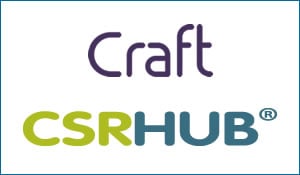The following post is part of a CSRHub series focusing on 10 trends that are driving corporate transparency and disclosure in the coming year. To follow the discussion of each trend, watch for posts on the CSRHub blog every Wednesday.
By Karen Dam
“There is no time for a regulatory business-as-usual approach. After decades of voluntary laissez-faire reporting, the time is ripe for stronger regulatory action.” With this statement, Mervyn King, former Chairman of the Global Reporting Initiative (GRI), called for a more robust regulatory environment at the ESG Disclosure Workshop in 2010. More governments seem to be hearing the call and the trend towards government regulation in CSR appears to be growing.
As noted in the 2010 Carrots and Sticks report by KPMG, the public, NGOs, and investors are demanding that governments take a greater role in sustainability reporting. “Mandating sustainability reporting is a strong signal, sent from regulators to the business community, about the long-term goals and objectives of the country as whole.” (See “The Consequences of Mandatory Corporate Sustainability Reporting”).
Many groups do not trust companies’ ability to regulate themselves. A solution to these questions about voluntary reporting standards would be binding, third party, government standards. These standards could allow stakeholders (and particularly stockholders) to more confidently assess a company’s sustainability, CSR, or ESG efforts. A frontrunner in this regard is the EU, which has consistently emphasized CSR and enhancing economic competitiveness by building trust between business and society.
A number of governments are raising their regulatory bars. In the 2010 Carrots and Sticks report, more than 140 national instruments on ESG reporting were identified, of which about two-thirds are mandatory standards. For example, the Danish Government’s Financial Statements Act of 2001 requires both state-owned companies and companies with revenues over 38 million euro and more than 250 employees to report on their corporate responsibility. The accompanying guidance documents refer to and encourage the use of GRI Sustainability Reporting Guidelines. Austria, Belgium, Canada, Finland, Germany, Netherlands, Norway, Sweden, and the US also formally refer to the GRI G3 guidelines in their regulations. Governments are implementing a mix of voluntary guidelines or codes, incentives, and endorsement of GRI guidelines to mandate at least a minimum level of ESG disclosure.
Not only are governments mandating ESG disclosure, they are showing greater support of CSR activities as a “consumer.” In most countries, government is the single largest individual purchaser of goods and services, so public procurement processes can help advance targeted environmental, social, and governance goals.
For example, the Canadian government via Canada’s Policy on Green Procurement targets specific environmental outcomes where procurement can effectively be used to mitigate the impact of environmental issues such as climate. A number of other governments have initiated ethical and/or green procurement programs that focus on a variety of goods and services including the EU, Japan, New Zealand, Switzerland, the UK, and the US.
With governments taking on a greater role in the CSR field we can expect more ESG disclosure from companies. CSRHub will continue to translate this information into performance ratings so that corporate managers, consumers, and government agencies can make informed decisions about how to improve the sustainability of their society.
Karen Dam is a data analyst at CSRHub. Karen completed her Bachelor of Science in Environmental Sciences at the University of Guelph, and a Master of Environmental Science at the University of Toronto Scarborough. She has enthusiastically filled research roles in the public sector. Karen has experiences in project management and research, including data collection and data management, analysis and synthesis. Karen actively volunteers with NGOs, including conservation authorities, to contribute to ecosystem protection, advocate environmental sustainability and of science literacy. Her hobbies include cycling, reading, and painting.


